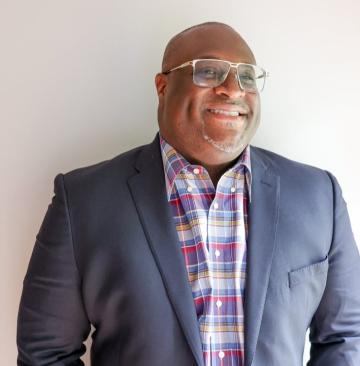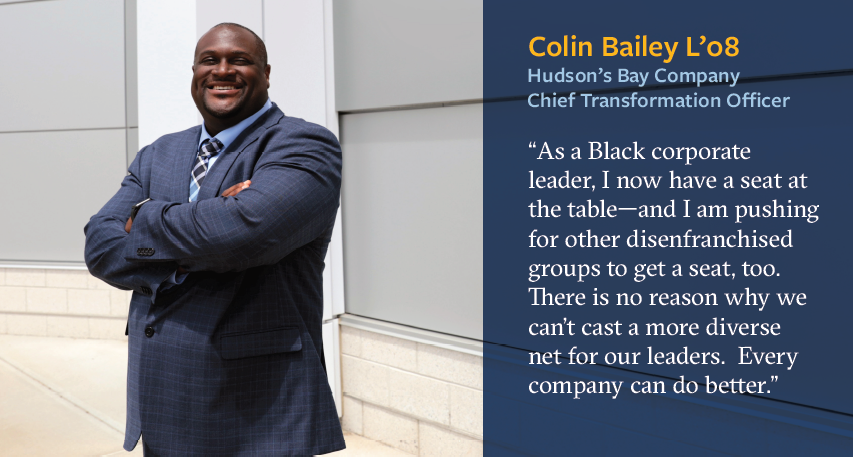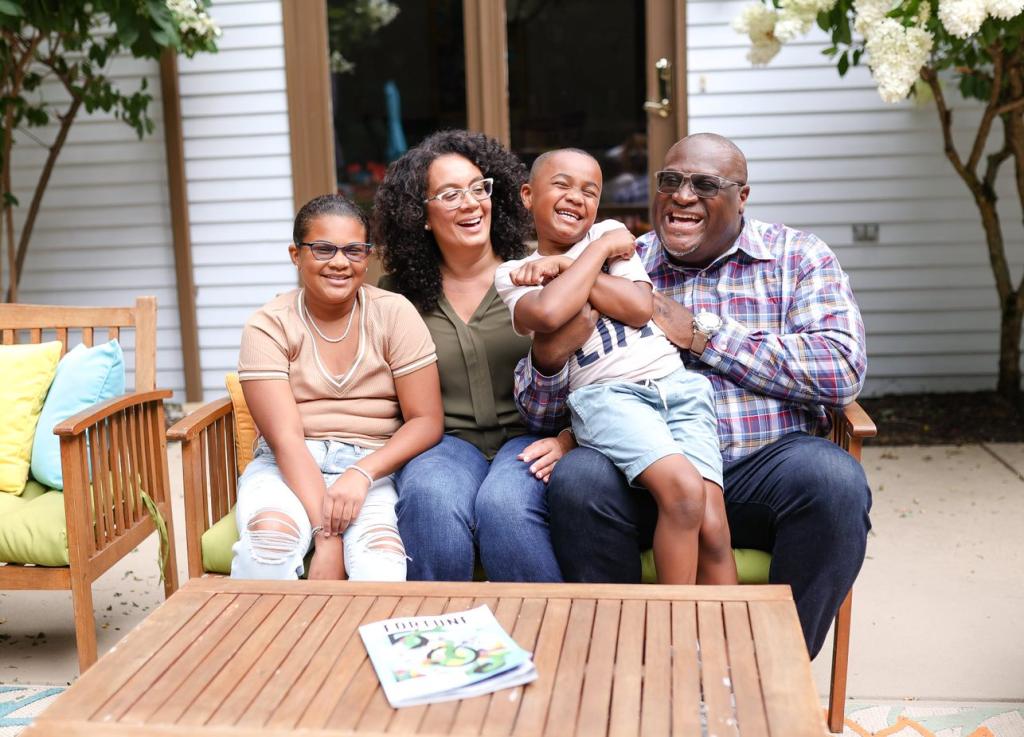Learning to Do Good While Doing Well

Collin Bailey, RWU Law Class of 2008
Juris DoctorGrowing up, Collin Bailey knew he wanted to do good in the world, to be a changemaker and address the issues of poverty and inequality he saw all around him. But he also knew he wanted to create financial stability, for himself and for his family. As Bailey explains it, “I know we weren’t the poorest people on the block growing up, but we definitely wanted for many things. And many of my family members and friends were poor. Their access to basic needs and the tools to improve their lives was blocked; they didn’t have the opportunity to be their best.”
Bailey has been very successful from a professional standpoint. For the past 15 years, he has worked with the for-profit companies CVS Health and the Hudsons Bay Company; before that, he was with law firms. Personally, he has positively represented his family, who moved to the US from Jamaica when Bailey was five, as a first-generation lawyer. While pursuing this for-profit imperative, Bailey never lost his sense of purpose and a desire to make things better for others.
“I wanted to be financially secure, so for every choice in my career, I chose the for-profit company and opportunities that helped me to build financial security,” says Bailey, “But what I learned is that even when you do that, you still have the ability to do good. You can mentor; you can share your knowledge; you can volunteer and help guide people who need legal support or advice. And because of your stature and title, people will listen and you can accomplish a great deal.”
Like most things in life, Bailey learned these valuable insights by doing. He began serving as a board member for many organizations that he believes have the capability to make positive changes in Rhode Island, such as the Economic Progress Institute. The institute is focused on changing legislative policies and approaches to economic issues in order to combat inequality and suffering. Says Bailey, “If we could create more economic opportunity, that might decrease the number of people who would have hunger frailty and vulnerability.” He also serves on the board of Roger Williams University Law School, which he considers a great honor, as well as on boards aimed at providing housing and homeowning opportunities to diverse populations.
His board service is only one way in which Bailey acts as a changemaker. He is also involved in several organizations that he thinks of as “more boots on the ground and providing more transactional help. For example, if someone is hungry and needs food, there is the Rhode Island Food Bank to give them a package of food. Or there is a soup kitchen where people can get a meal.” For Bailey, his board service is a good complement to his work with these other organizations. The boards focus more on the bigger picture, attacking the root causes of issues and trying to make or change policy. But, as Bailey says, until those changes and policies solve problems for good, “the more immediate help is 100% necessary.”
RWU Law is another place through which Bailey is trying to give back and do good. In addition to serving on the school’s board, he serves as an adjunct professor and is a dedicated mentor to his students. “I really enjoy mentoring students at the law school or young professionals as they try to go through the corporate ladder,” says Bailey. “A large portion of my mentoring has been focused on first-generation law students and professionals. Like them, I was the first one in my family to become a lawyer. I did well, and other people helped me a great deal. Through my personal experience, I’ve learned how to advise others, how to guide them without dampening their excitement and to better prepare them for practicing law in real-world scenarios.”

In addition to his innate commitment to doing good, it is important to Bailey to do good at RWU Law. “The school really leans in to diversity and social justice. They’ve always been about public interest, about confronting inequality of all kinds. The school tries to serve indigent defenders and people that don’t have the economic means to defend themselves from eviction or foreclosures. Another big thing the school has done is ‘Race and the Foundations of Law,’ which is a required course that every student has to take. It is the first of its kind in the whole country and other law schools have inquired about how they can successfully implement a similar course.”
“I have a lot of love for RWU Law. It was a great experience and I learned so much. It was a beautiful environment and I felt nothing but positivity and optimism.”

While it has always been a high priority to Bailey to be a force for good, he also hopes to serve as an example to others who are struggling with what they feel is a decision they must make: Do well for yourself or do good for the world? “I think that’s the conundrum that so many students have shared with me, that they were inspired to go to law school to help people, but then they realize they like the corporate world and fear they are selling out,” explains Bailey. “You don’t have to feel guilty for wanting to pursue a for-profit approach where you’re able to be financially successful. As long as your heart is in the right place, you will see opportunities to give outside of your day job; you can still make an impact. It’s okay to make money, but don’t let that define you to the point that you have the attitude where you won’t do anything for free or won’t do anything to help someone else. It’s also okay to do well. But it’s very good to give.”
